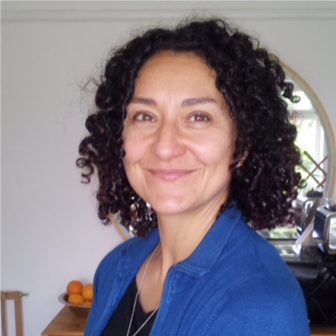
Movement Psychotherapy
I offer individual and group Dance Movement Psychotherapy (DMP) sessions to both adults and children. All sessions are confidential.
I am a registered Dance Movement Psychotherapist (DMP), a Private Practitioner, Clinical Supervisor, Certified Movement Analyst, and Movement Teacher. Please see the below summaries of the services I offer, and follow the links to find out more!

I offer individual and group Dance Movement Psychotherapy (DMP) sessions to both adults and children. All sessions are confidential.

For adults, I provide group or individual sessions in Laban Movement Analysis and movement observation for professional and personal development.

Individual or group supervision sessions for therapists, trainee therapists and health care professionals with an interest in an embodied approach.

I am a registered Dance Movement Psychotherapist (DMP), a private practitioner, clinical supervisor, Certified Movement Analyst and movement teacher. I offer movement psychotherapy sessions using an Integrative approach of Humanistic theories to both individuals and groups and offer supervision to trainee therapists, therapists and other healthcare professionals. I create specialist individual or group Laban Movement Analysis (LMA) and movement observation sessions for educational purposes, continued professional development (CPD) and personal development.
Currently I work as a Dance Movement Psychotherapist (DMP) in acute adult mental health and with mothers and babies in the NHS. I have 14 years NHS experience working as a DMP in secondary care inpatient, primary care, IAPT (Improving Access to Psychological therapies) facilitating groups for people with medically unexplained symptoms/body distress disorder (MUS/BDD) and in the community.
Other clinical experience since 2006 includes: adult and child mental health, severe dementia, acute adult mental health, primary care, learning disabilities, chronic depression, medically unexplained symptoms, eating disorders and forensics.
Since 2007, I have been a University lecturer facilitating different modules across courses and year groups (DMP Foundation, BA Fundamentals in DMP, MA DMP and MA Play Therapy, other short courses). My specialism is in movement analysis and observation and running experiential process groups for DMP and Play Therapy trainees.
Loss, stress, anxiety, depression, body image issues and eating disorders, physical and sexual abuse, identity problems, personal development, relationships, learning disabilities, sensory difficulties, physical disabilities, emotional and behavioural difficulties.
I aim to provide a safe, contained and non-judgemental environment to support and empower an individual in their personal exploration. My theoretical approach is Integrative with Humanistic perspectives. My embodied approach aims to integrate body and mind through verbal and non-verbal communication.
With focus on working with being present in the moment, I encourage natural, spontaneous movement to explore any themes and emotions which may emerge in a session. This exploration of creative potential is useful as both therapeutic tool and a life skill. Learning to understand, trust and follow body signals and impulses can help develop body and emotional awareness and allow opportunities for personal growth and change.
As a requirement to my DMP practice I adhere to the ethical code of practice outlined by the Association of Dance Movement Psychotherapy UK (ADMPUK) of which I was on council from 2010-2012, hold a current enhanced DSB; Disclosure and Barring Service certificate for working with vulnerable adults and children and insurance. As part of my practice as a DMP I have regular clinical supervision to ensure the continued development of therapeutic aims and objectives as well as to approach any difficulties arising. My Continued Professional Development (CPD) skills are updated yearly through attending varied embodied workshops, trainings and conferences.
Movement psychotherapy based research groups I have been and am involved in are: Chronic Depression and Negative Symptoms of Schizophrenia (NESS) project for Adults with Schizophrenia and Medically Unexplained Symptoms in Primary Care which is research piloting a new innovative care pathway funded by the Health Foundation. Please see related documents:
Rohricht, F, Papadopoulos, N and Priebe, S (2013) ‘An Exploratory Randomized Controlled Trial of Body Psychotherapy for Patients with Chronic Depression’, Journal of Affective Disorders 151 pp.85- 91.
Papadopoulos, N, Burrell, C, Smith, L, and Rohricht, F (2017) ‘Therapeutic processes and personalised care in body oriented psychological therapy for patients with Medically Unexplained Symptoms (MUS)’, European Journal for Person Centred Healthcare 2017, Vol 5, Issue 4, pp. 449-453.
Rohricht, F, Papadopoulos, N and Zammit, I (2017) ‘Novel primary care treatment package for patients with medically unexplained symptoms: a cohort intervention study’ https://bjgpopen.org/content/1/4/bjgpopen17X101121?versioned=true
Originally I trained as a dancer in classical ballet and contemporary dance in England, Belgium and New York. In 1986 I studied an Art Foundation in Liverpool Polytechnic, from 1986-89 trained in Brighton in Visual and Performing Arts at Brighton University and gained a BA honours degree and thereafter worked as a dancer, performer and teacher of dance and visual art.
In 1994 I moved to NYC to study Laban Movement Analysis at The Laban Bartenieff Institute of Movement Studies where I qualified as a Certified Movement Analyst (CMA). After returning to the UK and continuing dancing, performing and teaching I retrained as a Dance Movement Psychotherapist (RDMP) at Roehampton University and as a teacher (DTLLS) through Canterbury Christchurch University. From 2013-14, I trained at Roehampton University to be a DMP Supervisor.
I have experience of running movement groups since 1997; with children, children and parents/carers, adolescents, carers and adults with learning disabilities and the older population. Movement Psychotherapy group experience since 2006 includes: adult and child mental health, mothers and children under 5, severe dementia, acute adult mental health, learning disabilities, chronic depression, medically unexplained symptoms, eating disorders and forensics.
Since 2010 I worked as a DMP running individual and group sessions at East London NHS Foundation Trust in inpatient and outpatient Acute Adult Mental Health. From 2017-2018 I worked as project manager and therapist in primary care IAPT running groups for people with Medically Unexplained Symptoms.
RAD Classical Ballet all grades until Advanced level, Simonson and Modern Jazz, Contemporary, Modern, Tap, Improvisation, Basic Break dance, Indian, Bartenieff Fundamentals, Developmental Movement Patterns, Ballroom & Latin for Wheelchair dance.
Other movement experience: Authentic Movement practice (1 year group). Site specific dance performances include: NYC, Dance Umbrella, Resolution and international touring choreographing children’s shows. Dance film work includes “I Can’t Find Myself,” film about dementia (2015) “Becoming Bodies” by Beatrice Allegranti, Short film “Part of you, part of me” for Symposium for Embodying Loss choreographed by Layla Smith.
Sept-Dec 2014 - Dancer and choreographic collaboration with director Beatrice Allegranti and composer Jill Halstead with three dancers and one actor for dance film on Dementia; ‘I Can’t Find Myself’ A short film which shows how engagement with dance, theatre and music ‘can enhance kinaesthetic and affective responses and provide new ways of understanding the experience’ of people living with dementia (Allegranti May 2015). View edited film ↗
July-August 2012 - Dancer and choreographic collaboration with 5 dancers, directed by Beatrice Allegranti for research and development project ‘Sex is a confusing term’. This came from the work Becoming Bodies and Allegranti questioned definitions and confusions between terms ‘sex and gender’ across cultural and scientific discourses.
June 2012 - Choreographer and dancer in dance film ‘Part of me, Part of you’ for Embodying Loss Symposium, CATR (Centre for Arts Therapies Research at University of Roehampton)
July-August 2011 - Dancer & choreographic collaboration with 7 dancers in dance film directed by Beatrice Allegranti, ‘Becoming Bodies’.
Here is a list of frequently asked questions, click or tap on a question to reveal an answer.
If you have a question that is still not answered, please contact me.
↓
It is a form of therapy that encourages self- expression, creativity and communication using the body. Within the context of a therapeutic relationship, it uses movement and verbal expression as a way of exploring and working through positive/negative emotional issues and unacknowledged feelings. Creative and spontaneous self-expression and the use of symbolism in the moment can help bring focus on body mind integration and promote healing. DMP engages people in an artistic and therapeutic process through which they can discover their own power to symbolise, organise and integrate important life experiences. DMP encourages the integration of physical, emotional, cognitive and social aspects of each individual.
↓
The cost of a session is dependent on location, time of day and your financial circumstances.
↓
Yes, but this is dependent on which course you study on, any course other than Roehampton is fine. The reason being; I teach at Roehampton on the 2nd year MA and clear boundaries need to be maintained in order not to mix dual roles.
↓
Usually students have supervision from tutors at their place of study. If you are at a stage where you are running sessions and need to find your own external supervision then yes I can provide this for you.
↓
Yes a sliding scale may be possible, please contact me to discuss.
↓
Yes a sliding scale may be possible, please contact me to discuss.
↓
At the moment movement psychotherapists are not affiliated with any private health insurance companies. The Association for Movement Psychotherapy UK (ADMP) is now in process of becoming registered with the UK Council for Psychotherapy (UKCP). Once this happens it will allow movement psychotherapy to be a covered therapy option within private health care insurance.
↓
Usually a session involves a mixture of moving and talking and there is no prescribed amount. It may feel strange to imagine exploring movement in a therapy session initially but often can start to feel more comfortable after 3 -4 sessions in conjunction with developing trust in the therapeutic relationship with the therapist. Sometimes you may not feel not like moving at all and that is okay too. All movement no matter how small or large, breath support and the subtleties are of equal importance as is to remember there is no right or wrong way to move. I encourage everyone to work within their body limitations at all times and people with disabilities are most welcome.
↓
This is a popular question with students who are in a Psychodynamic training. Even though my theoretical approach is Integrative with Humanistic Theory, a large part of my work over years has been within Psychodynamic settings like the NHS. Here I work with transference and counter-transference processes.
↓
A Dance Movement Psychotherapy (DMP) session lasts 1 hour, a supervision session lasts 1 hour, an LMA session lasts 1 hour.
Group supervision sessions could last longer depending on number of participants.
Group DMP sessions last 1 hour.
↓
My cancellation policy for Supervision and Dance Movement Psychotherapy sessions requires discussion of contract arranged between client and therapist.
↓
"Laban Movement Analysis is a theoretical framework and language for describing any movement, from a conversational hand gesture to a complex action. Certified Movement Analysts (CMAs) can observe, analyze, interpret, and prescribe movement experiences in ways that:
1. value the uniqueness of an individual’s (or culture’s) movement patterns;
2. asses physical blocks and dysfunctional movement patterns;
3. guide the individual through expressive and functional changes."
(LIMS, 1994)
LMA can offer ways of understanding and deconstructing how people cope in their environments and in relationship to self and others.
↓
Dance Movement Psychotherapists (DMP) use LMA to gain an understanding of themselves and other’s movement profiles. It is useful to have an understanding first of your own movement preferences before you work with other people. As a DMP I work with feelings that emerge from the client and what they evoke in me which can be referred to as a felt–level response. In embodied clinical practice, dance movement psychotherapist’s use LMA as a tool to stand back and observe movement from a critical stance. It is useful to stand back and quickly be able to break down what you see when working with clients.
↓
Learning language to describe movement using Laban and Bartenieff’s themes and Effort Factors of Weight, Space, Time and Flow can be helpful in simplifying and deconstructing sometimes complex movement patterns enabling clarity of intervention within clinical practice.
In this "News" section you can find updates on upcoming seminars and trainings, client testimonials, and articles of interest relating to Movement Psychotherapy.
If you would like to receive notifications when new articles are published, please subscribe here.
12 March 2022
Please find below an anonymous testimonial from a client who was in personal therapy: “Layla was highly recommended to me by a friend who is now a dance movement therapist herself […]
Experiential on aspects of Body, Effort, Space, Shape and Movement Observation. How can Laban Movement Analysis (LMA) be used within the therapy space? Finding words to describe LMA to others.